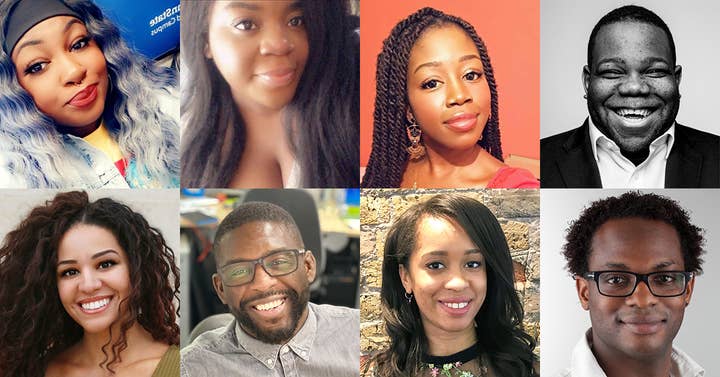"We need a real shift in the tide": Black professionals on representation in the UK
As the UK celebrates Black History Month, we speak to developers, players, ambassadors and more about racial equality in the games industry
Video games have taken us to vast new worlds and allowed us to experience impossible feats, but when it comes to the representation of Black people, they still have a very long way to go.
Earlier this year, games industry body UKIE published its first industry-wide census and concluded that just 2% of people working in the UK games industry come from the Black community.
Of course, this came as no surprise to Black professionals and discerning Black players, who are frequently used to being ignored entirely, both in-game and in real life. This community has been fighting for recognition and fair treatment -- just as it has in other walks of life -- for centuries, and gaming is no different.
As the UK celebrates Black History Month, we spoke to a range of industry professionals, players and advocates from the Black community to understand more about their experiences in the games sector as Black people, how they feel about representation in video games today, and what needs to be done next to ensure progress continues.
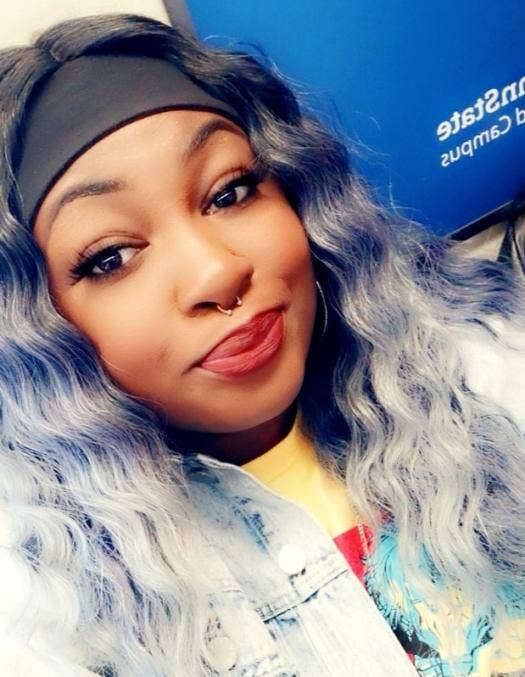
Before we talk to those in the industry itself, consider this from player-turned-content creator and co-founder of Black Twitch UK Danielle Udogaranya. She started creating ethnic and urban custom content for The Sims 4 in 2015. Afro hair styles, from curls to braids to buns, and colourful dashiki garments are all things she created to fill the space that's all too frequently missed by many games with character creation tools.
"I wasn't met with any push back, but rather embraced by the community, because I was creating content which allowed them to feel represented and see themselves in their games," says Udogaranya. Her work has started a conversation and opened up more opportunities for her and others.
The enthusiasm around Udogaranya's work is just one example of why representation in games matters. Sadly, this is not the kind of welcome other Black people -- especially women-- have received upon expressing their interest in gaming.
Cassie Hughes is also a content creator and co-founded Black Twitch UK alongside her friend Udogaranya. She says her first ever stream almost turned her off from broadcasting all together.
"I was met with racist comments and I had no idea that I would encounter something like this on Twitch. When I shared my distress with friends -- who were not Black streamers -- they dismissed it. A year later, I found groups like Black Girl Gamers and met streamers that had also been through these experiences. Being able to address this and find tips on how to be safer when streaming encouraged me to keep going."
Annabel Ashalley-Anthony, founder of gaming community Melanin Gamers, has also faced racism and discrimination simply for being Black and participating in the streaming space.
"The industry as a whole needs to actively start the conversation about race, show they are taking the matter seriously and put action to words"
Jide Agbalaya, Sega Europe
"As a streamer who uses a camera, I have gotten numerous racist and sexist comments, some of which are harmful, others are downright derogatory -- [like] the use of the N-word," she says. "Melanin Gamers is a necessity in the current climate we are living in and I believe that by creating this platform we will be able to strive towards changing the industry so that it reflects all those who are part of it."
The drive of these young women, and their commitment to look out for their communities, is spectacular. Visibility counts and so do numbers. And this is also something that has prompted some Black professionals in the games industry to band together, along with other ethnic minorities, to take action.
Des Gayle is a veteran games developer with over 20 years' experience in the sector. Two years ago, Gayle and several of his industry friends set up the advocacy group People of Colour in Play to promote racial diversity and equality in the UK games business.
"We all came together to start POC in Play because we didn't really see much movement in the industry addressing the challenges we're all facing," he says.
"Early on in my career, I was either the only Black person or one of two. And this is testament to those companies. I never felt like it was an issue. But, I think from growing up in England you also have that two-second scan: whatever party you go to, whatever conference you go to, you just check what the environment is like.
"While it has got better in the sense that I've seen more people of colour in the industry, there's still not as many as there should be, because even when you take into account the demographics of the country the numbers are still poor."
If the need for change wasn't already clear enough from black action groups, the spiralling impact of George Floyd's death and the spark it lit among the Black community and others around the world -- unified under the mantra of "Black Lives Matter" -- has been a wake-up call.
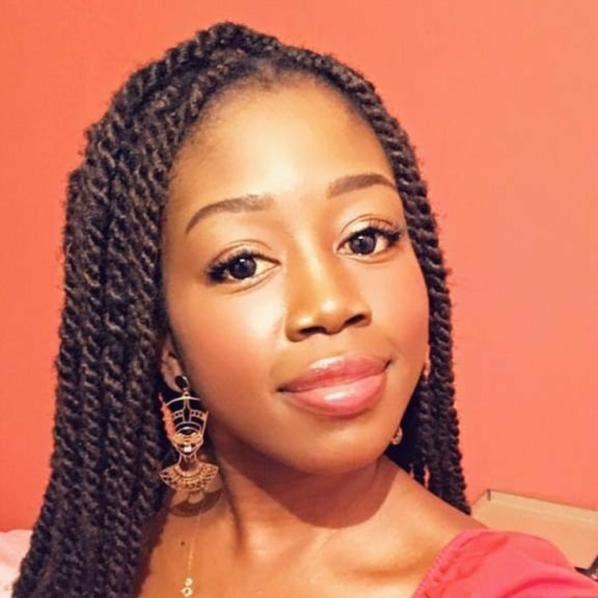
The best way to champion change is through representation, and specifically giving Black professionals more opportunities to connect with the next generation.
One company that is attempting this is TikTok. This social media platform has exploded among young people, and it boasts 100 million users across Europe alone. This Friday (October 23, 6pm BST), TikTok and trade body UKIE are hosting a gaming roundtable with five Black professionals.
Entitled 'Black History, Black Present and Black Future,' the panel will feature Des Gayle, Premier PR's Lauren Dillion, Sega Europe's Jide Agbalaya and Charlotte Harris, and The Multiplayer Guys' Dave Springer. It's part of an ongoing campaign to support the Black community and will be chaired by presenter Elle Osili-Wood. It will be streamed via the official UK TikTok account.
"What makes this campaign important is that this is an employee-led campaign made by and for the Black community," says Wayne Emanuel, TikTok's gaming partnerships lead for Europe. "We want to lead the conversation on representation of diverse voices in the industries in which it operates, and as part of Black History Month we wanted to bring key figures in gaming to talk about what needs to be done to increase black people's representation in the UK sector."
Emanuel adds that they want to communicate to people aspiring to work in gaming that the variety of roles available is vast, which is why TikTok has opted to have a range of panellists from a cross-section of disciplines, including programming, publishing, IT, and PR.
All of the panellists we spoke to felt pleased by TikTok's invitation to appear on such a roundtable and the seriousness with which the company is treating it.
"It's not about bringing in Black faces so your company photo isn't quite so embarrassing, and then leaving them untethered in a workplace that isn't built for them"
Elle Osili-Wood, presenter
"I've been on panels before to talk about women in games, but never before about being Black so this to me does feel like a rare thing," say Premier PR's senior account manager Lauren Dillon. "I'm really happy that TikTok is giving the panel, who have a variety of expertise, the chance to have the conversation openly whilst being paid for our insights."
That last point is an important one, as many non-white professionals have experienced doing work for large businesses -- such as panel appearances -- only to receive nothing for their talent and their time. And when it comes to connecting with the next generation, companies must put their money where their mouth is.
"If we want to inspire young people to think about a career in games and to make the decision to set that as their goal in life, we have to reach them where they are," says UKIE CEO Dr Jo Twist. "TikTok offers a great route to reaching huge numbers of young people quickly... This roundtable is important because it offers a crucial public space for Black people working in games to honestly talk about their experiences in the industry.
"To be able to make games more equal, inclusive, representative and diverse, we need to have opportunities for people to share their stories and their experiences -- both positive and otherwise -- so that we can work together to build a better industry. And with the range of expertise and role models in this roundtable, we think that it provides a good picture of what people are thinking across the sector, too."
Since the publication of its census, UKIE has been making strides to improve diversity in the industry. It's #RaiseTheGame initiative is setting out clear steps that UK games studios can adopt to help level the playing field for minority representation within the industry. But the Black professionals we spoke to want to see more dramatic changes.
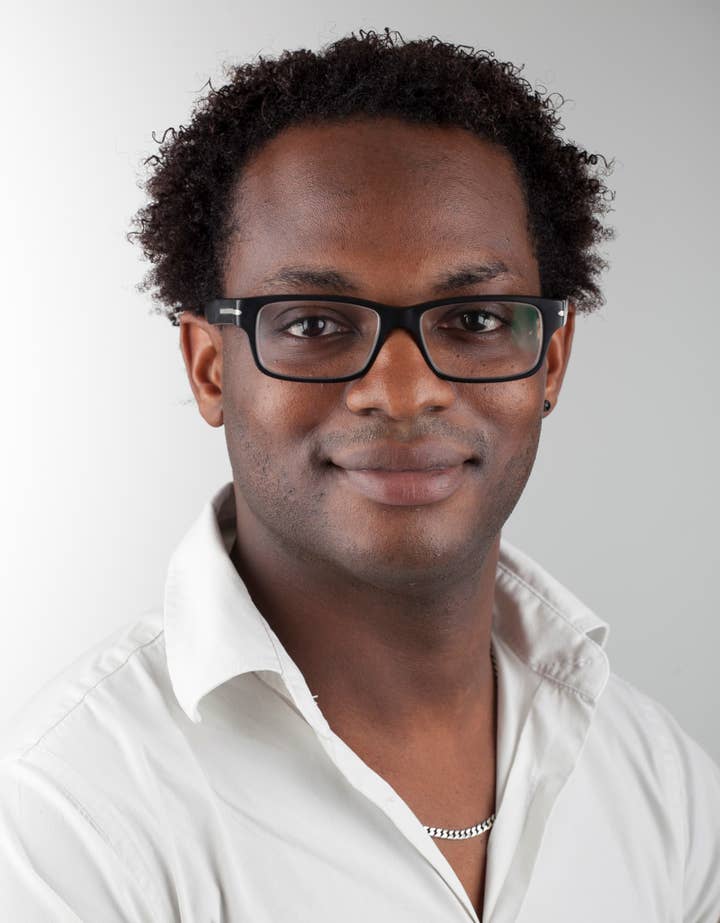
"The industry as a whole needs to actively start the conversation about race, show they are taking the matter seriously and put action to words," says Jide Agbalaya, systems infrastructure manager at Sega Europe. "BIPOC groups need to be created so companies can avoid some of the common pitfalls, such as tokenism or pandering. If the solution was trivial, then we would have a solution by now. But we can do more to get the ball rolling in the right direction."
Elle Osili-Wood adds: "For me, what needs to change is the ability of people in power to look beneath the surface. We need to see every facet of the Black person's experience in the workplace supported -- it's not about bringing in Black faces so your company photo isn't quite so embarrassing, and then leaving them untethered and unsupported in a workplace that isn't built for them."
Gayle feels games companies need to ramp up their investment in several ways. The first is embracing flexible working -- rather than reluctantly accepting it because of the coronavirus pandemic -- and give employees the proper equipment, such as a suitable office chair and powerful PC in their home working space.
"Having flexibility is important," he explains. "What that does is that opens up a massive workforce for you. Not just for people of colour, but for loads of minority groups. Then, there's demographics. With my studio Altered Gene, I want to work with the best people that I can afford, and I realised at an early stage it doesn't matter where in the world they are -- as long as I can pay them. And that just opens up another world of talent, and once you do that your games and projects get better. And there's support. That's training your current staff in a variety of things, like empathy, unconscious bias, and actual leadership and management skills."
In addition to these points, Gayle wants to see one organisation, or a collective, create a prototype fund specifically for minorities and offer a reasonable sum -- £25,000, for example -- that would enable them to experiment. In his view, this immediately brings in "serious people, because you're going to have an idea fleshed out in a five- or ten-page doc so there's a clear idea of how you're going to spend that money."
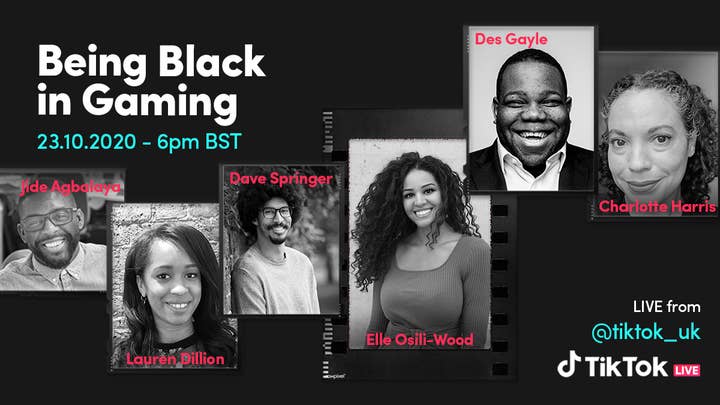
Just as crucial as investing in the current workforce is the need for the industry to focus on inspiring and discovering the next generation of professionals, regardless of their race or background.
"We are not calling for needless tokenism but a real shift in the tide, from the grassroots to the very top"
Annabel Ashalley-Anthony, Melanin Gamers
"I think companies across the board need to do more to reach black communities when offering out work experience," says Dillon. "I've heard too many stories from various people in the industry where an opportunity has been offered to someone's friend's son or daughter, instead of going through the proper channels to open up the chance to somebody of a different background. There is a whole community out there who don't get the same chances. They might not be the right person for the job, but everyone deserves to know that the opportunity to apply exists."
Gayle agrees with this point and feels games companies need to be far more proactive in reaching out to young people in higher education and outside of it: "I want to see an increase in internships, because we need to diversify how people get into the industry. Not everyone's going to go down the university route -- and I don't really think you need a degree to get into video games."
He adds: "The education system in the UK is broken. It's a glorified memory test. And there are some people who just don't operate well doing a memory test under time constraints. It just creates too much pressure and smart people fail. So I want another avenue for them to get in, which is just based on aptitude and smarts."
When it comes to the future for Black people in the gaming, the consensus from those we spoke to was that they are cautiously optimistic, but remain vigilant. There has been much talk. Now these Black professionals, players and advocates want to see this talk manifest into more action, followed by tangible and long-lasting change.
"We are not calling for needless tokenism but a real shift in the tide, from the grassroots to the very top," says Ashalley-Anthony.
Like her peers and fellow professionals, she says her ultimate goal with Melanin Gamers is to "inspire people into careers and roles they may not have considered because they don't see themselves represented."
Games companies can no longer ignore Black and non-white people, not when there is this wealth of talent and ideas from professionals in the sector and enthusiastic ambassadors of it. It is their stories and experiences that will inspire the next generation, so elevate them.
Udogaranya concludes: "It's important to champion Black gamers because representation is key. I want to see more of us in these spaces, because it can and will motivate, encourage and promote the growth of a more diverse and representative generation of gamers.
"Seeing others who look like you in these spaces will make it feel more like home, and less isolated. Most importantly, it will become the norm. And this is what the ultimate goal is."
TikTok's Black History, Black Present and Black Future gaming roundtable takes place on Friday, October 23 at 6pm PST. You can watch it here.
